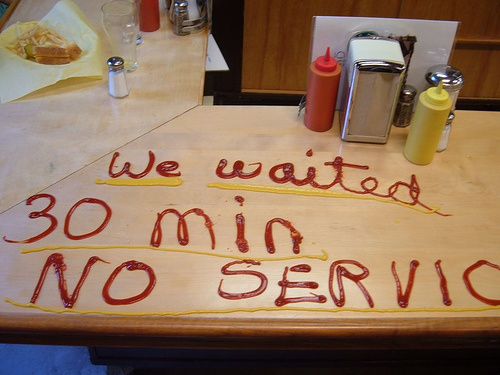We all know someone who has “Passive Aggressive” tendencies! Perhaps there is a character in the office; a member of your family; someone you live with or a member of a group you are in.
Perhaps you have someone who leaves ‘notes’ for you that have smily faces 🙂 but are ‘menacing’, or when ever you ask someone to do something you have the silent treatment. Sometimes it can be challenging living or working with a person like this. But it is best to have a sense of humour.
Yesterday, I came across a whole list of great passive aggressive notes which made me laugh. Here is the link There is always a hidden punch within the politeness of the messages!
So what is passive aggressive behaviour? Here is a definition:
Passive–aggressive behaviour is the indirect expression of hostility, such as through procrastination, stubbornness, sullenness, or deliberate or repeated failure to accomplish requested tasks for which one is (often explicitly) responsible.
So what are examples of passive aggressive behaviour – as well as the ‘passive aggressive’ notes? Here are some examples.
1. The Silent Treatment. Aah. The Passive Aggressive person (PAP) ignores you and won’t speak to you. Feeling uncomfortable, you crawl over, cap in hand, asking what’s wrong. “Oh Nothing”, they say. But you know otherwise. Of course you’re then giving them loads of attention whilst feeling guilty – but don’t know why!
2. Resenting demands of others. Instead of saying ‘No’ to some requests, they do the tasks but hold a resentment for the person asking. For a long time. In my family we call it ‘Being a martyr’….
3. Agreeing to do a task then deliberately doing it badly. Of course they won’t be asked again. Why didn’t they say no in the first place?
4. Harbouring a hostile attitude towards someone. If someone doesn’t acknowledge their hard work, devotion, loyalty, the PAP is hostile towards that person. They certainly notice the PAP then!
5. Deliberate procrastination. The PAP has been asked to do something. They delay responding to a request until the last minute. The PAP is punishing the person asking and they of course get stressed that the task might not be completed.
6. Throwing the last punch. PAPs love to have the last word – particularly an insulting one. Even if there has been a dispute that has been resolved, they can’t help adding a nasty or insulting remark which makes them feel stronger and the other person awful.
7. Disguising negative comments with friendly, smily delivery. Some PAPs are able to appear friendly, warm people, but it is only when you finish a conversation that you realise what they’ve said isn’t warm but really nasty. Ahh!
Reading through this list I recognise a couple of things I do, as I’m sure most readers do. After all we’re only human. BUT if an individual is constantly like this, it is very difficult to work or live with them. If a department or even an organisation is like this, you will go out of your way to avoid them. PAPs are, for whatever reason, unable to manage boundaries surrounding their time, energy and their own needs. The negative vibes and behaviour they give out to others is their own frustration at their lot.
These individuals and/or departments need some assertiveness training: learning when to say no and to identify clear boundaries. We have a wonderful Assertiveness Workshop available for teams or individuals within an organisation. If you think a department or specific individuals would benefit from this course, do contact me
Now whilst I’m tempted to leave a Passive Aggressive Note about clearing up after Supper, I’m going to take a deep breath and go for a walk. 🙂



